Confucius Institutes in South Korea Promote Chinese Communist Party’s Propaganda
2020-5-2, Dong-a Ilbo [Translation]
“Mao Ze Dong is someone who brings happiness to the Orient.”
- No Confucius in the Confucius Institute
- Propaganda of the communist system, distorted history
- Children’s teaching materials also praise Mao Zedong
- Praises Chinese-style “democracy”
- Materialism view of history [Marx’s dialectic materialism]
- U.S., Europe kick out Confucius Institutes
The Communist Party of China is said to have established the Confucius Institute to promote Chinese language and culture to the world and boost Chinese soft power. As of April 2020, 545 large Confucius Institutes and 1,170 smaller Confucius Institutes [total=1,715] were established in 162 countries.
The Confucius Institute borrowed the name of Confucius, but has been criticized for not being a place to teach Confucian thought. It is also suspected of being a “spy agency” that spreads propaganda for the Chinese Communist Party system, gathers intelligence, and monitors Chinese scholars’ activities. In the U.S. and Europe, the movement to expel the Confucius Institute due to its impure intent [is already underway]. New Dong-a obtained and analyzed the textbooks of the Confucius Institute, which was at the forefront of the propaganda of the Chinese system.
According to the Common Sense History of China published by the Chinese State Council’s Academic Affairs Office (僑務 辦公室, Overseas Chinese Affairs Bureau) and the Chinese National Chinese International Promotion Prosecutors’ Office (中國 國家 漢語 國際 推廣 領導 小組 辦公室), the 1st National Congress of the Communist Party of China [truncated]:
“After the end of the convention (the 1st National Congress of the Communist Party of China), a new power called the Communist Party of China appeared in the Chinese political arena. The Communist Party brought light and hope to the Chinese who were suffering a great disaster.” [Truncated]
“He (Zhou Enlai), the first Prime Minister and Foreign Minister of New China, is a man of outstanding diplomacy and charming character. He succeeded and triumphed in every diplomatic field he attended and became a symbol that brings hope to people who love peace.”
Even in the textbook for children, communism and the Communist Party of China’s praises are not missed.
In Learn Chinese with Me (限 我 學漢語) released by the Chinese National Institute for the International Promotion of Chinese Language and Literature, the song titled “Honghu’s Water, Waves Rise and Rise (洪湖 水 浪 打 浪)” is introduced. [Honghu means Hong Lake and the city adjacent to it in Hubei is also named the same name.] It is the song of the revolutionary musical “The Red Guards of Honghu (洪湖赤衛隊).” The Red Guards of Honghu musical premiered in 1959 and was made into a film in 1961. The contents praise the achievements of the Communist Party Red Guards (赤衛隊·적위대) in the Chinese Communist Liberation Zone (Soviet) in the 1930s in Xiangxi (湘鄂西, 샹어시), also known as west region of Hunan (湖南) Province and Hubei (湖北) Province [Hunan-Western Hubei Revolutionary Base Area or Hunan-Western Hubei Soviet].
The lyrics of the song are, “Everyone says that Heaven is beautiful, but how can it be better than Honghu, which has a lot of fish and rice? The Chinese Communist Party’s grace is deeper than the East Sea.” It unilaterally praises the Communist Party of China. In the Xiangxi “Communist Party Liberation Zone,” the murder of landlords, looting of wealth, and rape of women were carried out in the name of “revolution.”
Comparing Mao Zedong with the sun and praising him
In 2018, the Chinese government planned to show the revolutionary drama “Honghu Red Guards” in Australia. At the press conference held prior to the performance, they deleted the words “Red Guards” to remove the ideology and thought aspects from the original title of “Red Guards of the Honghu Lake” and dubbed it “Honghu,” but the Australian government, which noticed the danger of spreading communist ideology in the drama, denied the performance.
The Confucius Institute textbook Jungmoon (中文), compiled by the publisher of Jinan University in Shandong Province, China, contains a song “I Love Beijing Tiananmen.” The lyrics praise Mao, comparing him to the sun: “I love Tiananmen in Beijing. The sun rises in Tiananmen. Great leader Premiere Mao. He leads us forward.”
The Confucius Institute textbook implicitly infuses Marxist and Communist ideas. Marx’s dialogue with a woman with the surname of Bai appears in Beijing University Press’s The Age of China. In the conversation, the woman points out Mao Zedong to Marx, and says, “‘Zhedong’ means to bring happiness to the people of the Orient [Asians].” In the same textbook, she describes the world after death and injects [Marx’s] historical materialism thinking, stating, “Going to meet Marx is no different than going to meet God.” In the dialogue contained in the book “Learn Chinese with Me,” the phrase “Today people are living longer, so there are 20 to 30 years from retirement to meeting Marx.”
The People’s Republic of China gives the appearance of a multi party at China’s People’s Political Consultative Conference with the participation of the Chinese Communist Party and the so called “democratic parties”–the China Democratic League, China Association for Promoting Democracy, China Democratic National Construction Association, Revolutionary Committee of Chinese Kuomingtang, Chinese Peasants’ and Workers’ Democratic Party, China Zhi Gong Party (aka Public Interest Party of China, based in the U.S.), Jiusan Society (aka Nine Three Academic Society, formerly Democracy & Science Forum), and Taiwan Democratic Self-Government League (based in Hong Kong). In reality, the Communist Party of China is a one-party dictatorship under the Party-State system.
“The Communist Party of China struggles for democracy”
Despite these facts, the liberal arts textbook Democratic Competence proposed by the Confucius Institute is promoting China as a democratic state. The opening section in the book titled How the Chinese Communist Party is Moving Forward is written as follows:
“Some say the Chinese Communist Party is not a party that follows democracy. Is this a historical fact? Some people consider the People’s Congress of China a system of false democracy, and the People’s Political Consultative Conference system only a political adornment. Does this make sense? Western society reprimands the Communist Party of China, saying that it is out of line with the “global democracy trend” due to lack of inclusiveness, representativeness, and legitimacy by implementing a one-party dictatorship. Is this accurate? This book is intended to inform readers. The 90-year history of the Communist Party of China is a history of building democracy with the goal of democracy.”
[Truncated]
Distorted History of Tibet
Another liberal arts book, Tibet Story, negatively describes and distorts Tibet’s history and the Dalai Lama, the leader of Tibet and its religion as follows:
“The Dalai Lama was the last ruler of the combined church and state power, trying to maintain the regime’s existence by any means…Because the Dalai Lama tried to maintain the regime by any means, the regime, which lasted for over 600 years, ended.” (p. 72)
“In Old Tibet, every peasant was merely a serf, who had to live in debt for a lifetime. The Tibetans had to deal with excessive and miscellaneous taxes and forced labor, and as humans they lost all freedom and became poorer.” (p. 74)
[Truncated]
“The Tibetan punishment was very harsh. The most serious one was the death penalty. There was also execution by grinding skulls. The most common punishment was to put the criminal in a sack and throw him/her into the river. There was also cutting off of the limbs. There is also a terrible punishment of gouging eyes, and after heating the iron, it is put into the eyeball, or boiling oil or water is poured into the eyes to lose sight.” (p. 78)
On the other hand [while it denigrated Tibet and the Dalai Lama], it justifies the Communist Party’s invasion and domination of Tibet.
“The most prominent and fundamental characteristic of the Tibetan Autonomous Region [which the CCP established after invasion] is that Tibetans become the masters and decide their own destiny. Those who were permanent servants or slaves of the lords in the past are now the masters of the state and the masters of society, and now they have the right to manage the state, and are given the right to vote and to be elected. People’s representatives of all Tibetan Autonomous Regions, municipalities, prefectures and towns are all directly or indirectly elected and they also have the right to vote as well as to dismiss. There is nothing like it in Tibet’s history.” (p. 97).
[Truncated]
As seen above, the Confucius Institute borrowed the name of Confucius, but in reality, it became a body that disburses to the foreigners the propaganda that the communist system is superior. The Chinese Communist Party, which dug up the Confucius grave in Qufu, Shandong Province during the Cultural Revolution (1966-76), once again borrowed the name of Confucius and dishonored him.
At the beginning of the establishment, the Confucius Institute was used as a medium of Chinese education and Chinese cultural exchange as part of soft power diplomacy. In 2004, the “World’s First” Confucius Institute was established in Seoul (Seoul Confucius Institute, Yeoksam-dong, Gangnam-gu, Seoul). Since then, a total of 23 Confucius Institutes were established in South Korea, the largest number among countries in Asia.
The Confucius Institute’s characteristics changed in March 2013 after Xi Jinping came to power. With the slogan of “Chinese Dream” and “Chinese Revival,” the Xi Jinping government strengthened overseas propaganda activities and used Confucius Institutes as a propaganda tool for the system. After the creation of the One Belt One Road (Belt and Road Initiative) strategy in 2015, the Confucius Institutes were extensively built, focusing on the countries participating in the Belt and Road Initiative. The Confucius Institute has become a tool to foster “sharp power” (information warfare and ideological warfare pursued surreptitiously by authoritarian regimes).
[Truncated]
Despite the circumstances, there is little awareness of Confucius Institutes in South Korea. With the largest number of Confucius Institutes in Asia, South Korean universities are still actively attracting Confucius Institutes. University officials emphasize the inevitability of attracting Confucius Institutes for reasons such as the inevitability of expanding exchanges with China, providing Chinese language education at half the cost of commercial academies, and various incentives provided by the Chinese government (inviting university officials, providing scholarships).
Source: http://www.donga.com/news/Main/article/all/20200502/100887250/1
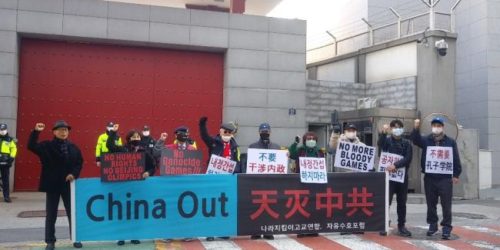
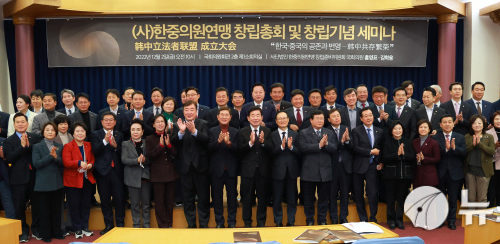
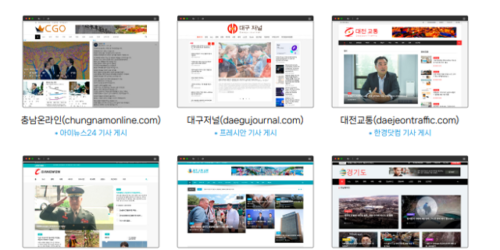

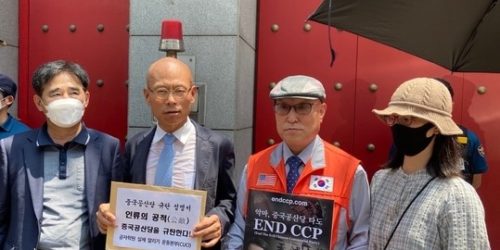
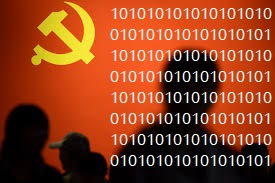
It’s a serious problem!!